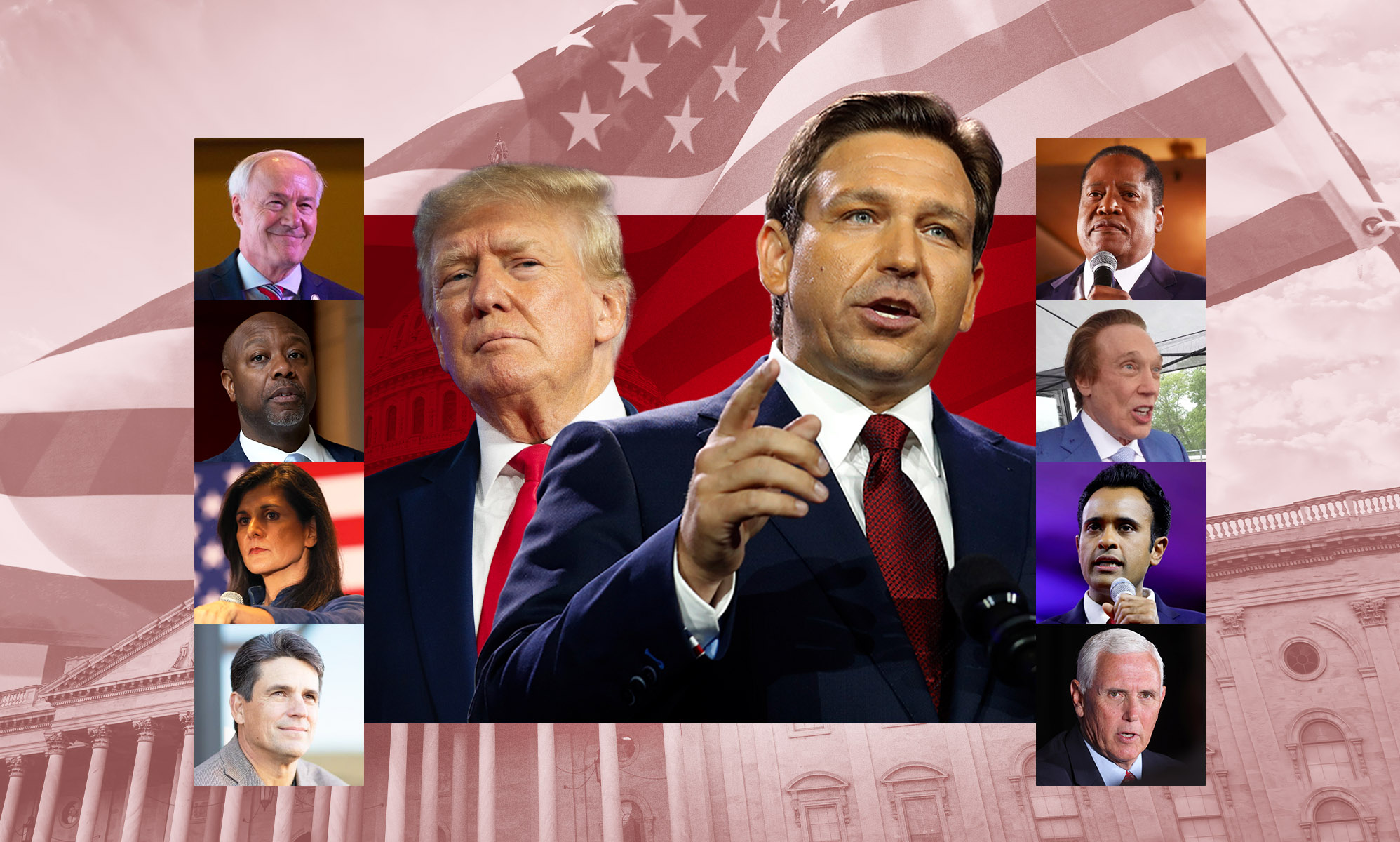Five presidential candidates will take centre stage on Wednesday (8 November) for the third Republican debate, and pro-LGBTQ+ candidates are in short supply.
The debate field has continued to narrow down as the rigorous criteria to make it on stage, as set by Republican Party leadership, mounts.
Only five candidates – Florida governor Ron DeSantis, anti-woke biotech entrepreneur Vivek Ramaswamy, former UN Ambassador and South Carolina governor Nikki Haley, South Caroline senator Tim Scott and ex-New Jersey governor Chris Christie – have qualified for the third showdown.
Thus far, former president Donald Trump has skipped the Republican debates, and he’s declined his invitation to the third date. Despite being a no-show at the events, Trump has maintained his status as the frontrunner in the 2024 Republican race.
Trump and DeSantis are the clear favourites for the Republican presidential primaries, with both holding immense sway within the party and having dedicated fan bases of right-wing voters.
However, it would be foolish to completely rule out other candidates It’s a race that will focus on LGBTQ+ rights, as hateful rhetoric and damaging talking points are already being used on the campaign trail and in the debates, so here’s your guide to the 2024 Republican candidates.
Donald Trump: The most anti-LGBTQ+ president in recent history
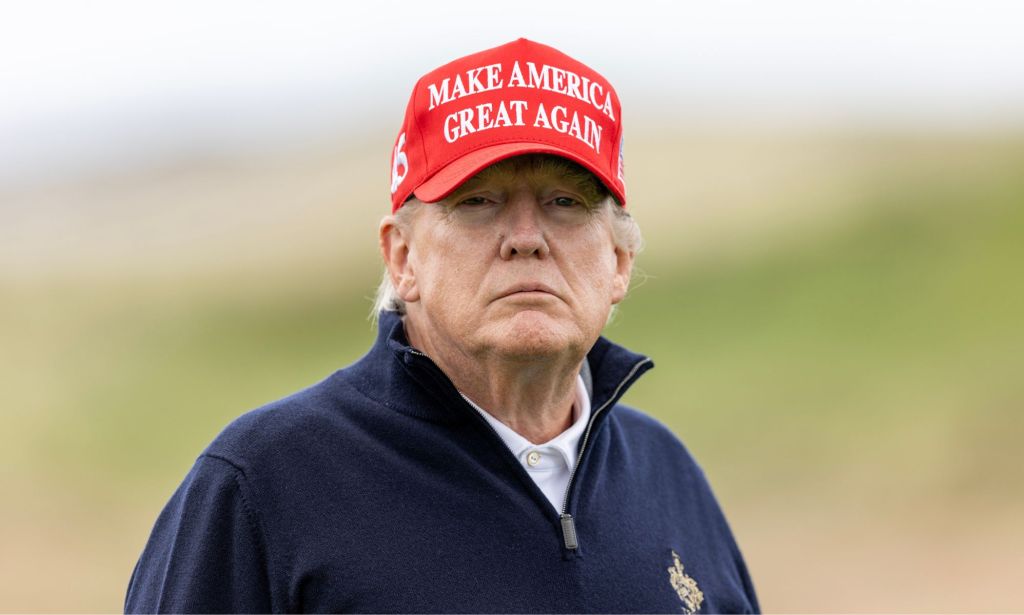
Despite being the first president – former or current – charged with criminal activity, Trump remains the frontrunner in the 2024 Republican candidate race. No other potential candidate has registered in the national polls close to Trump, who has a ravenous crowd of right-wing supporters in the US.
The former president opened his 2024 bid by promising to ban gender-affirming healthcare for trans youth, attacking hospitals that provide such treatments and pushing for a federal law recognising only two genders if he’s re-elected.
His four years in the Oval Office were marked by an intense attack on LGBTQ+ rights. He banned trans people from openly serving in the military, called on courts to legalise discrimination against queer people and rolled back Obama-era protections for transgender Americans under the Affordable Care Act.
Ron DeSantis: Florida governor waging war on trans rights
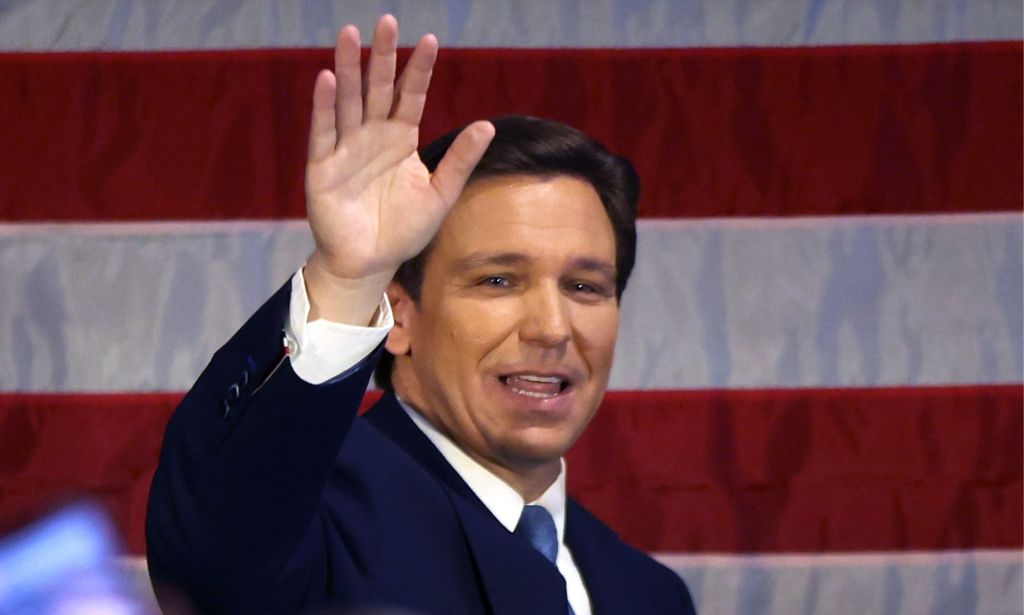
The hard-right Florida governor is styling himself as a younger, more electable alternative to Trump, who endorsed DeSantis for his current job.
DeSantis is still lagging behind Trump in popularity, but he is seemingly gearing up for a tough race to see who ultimately takes the final spot in the 2024 presidential election.
The Republican governor opened his presidential bid by emphasising his credentials as a so-called culture warrior, attacking “woke” Democrats and pointing to his DeSantis’ anti-LGBTQ+ history as proof of his worthiness to voters.
Nikki Haley: Outsider has a solid anti-LGBTQ+ fan base
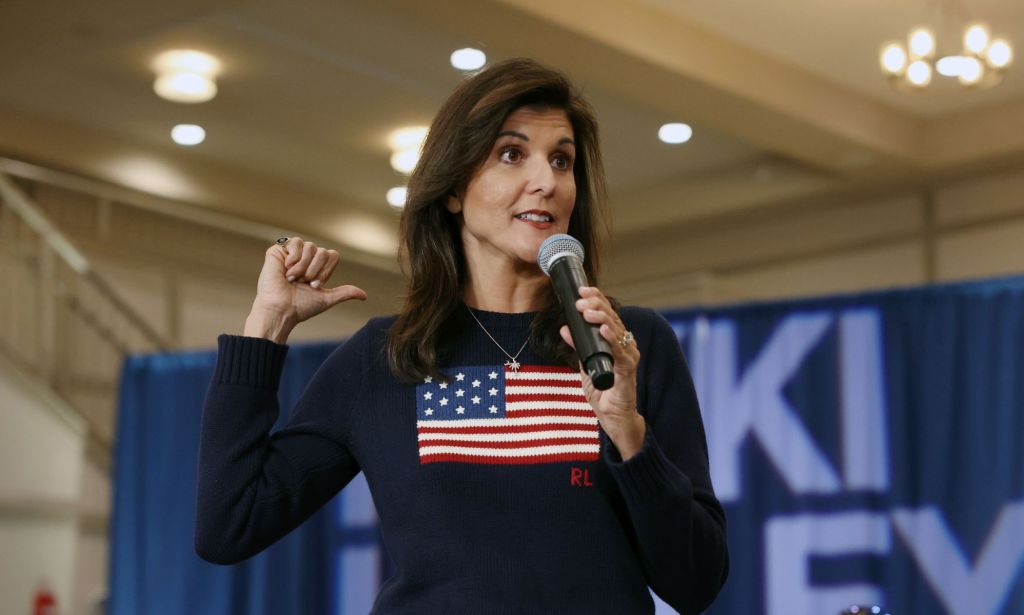
Haley may not be a frontrunner in the Republican presidential campaign run – she’s polling fourth behind Trump, DeSantis and Mike Pence (more on him later), but she still has a strong conservative track record among the candidates that could make her appealing to voters.
She opposed same-sex marriage as South Carolina governor, served as a United Nations ambassador under the Trump administration and claimed Biden’s support of trans inclusion in sports was an attack on women’s rights.
Thus far, Haley has used anti-LGBTQ+ talking points to keep her campaign in the headlines. She denounced DeSantis’ ‘Don’t Say Gay’ law – which restrictions LGBTQ+ discussions in schools – for “not going far enough” and misgendered social media influencer Dylan Mulvaney.
Where does Vivek Ramaswamy stand on LGBTQ equality?
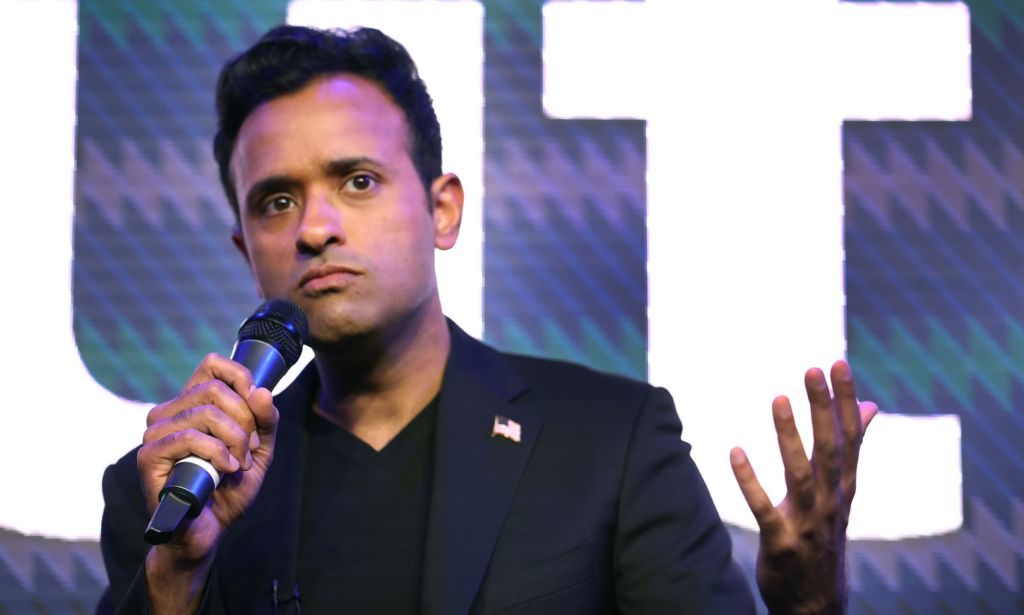
The biotech and healthcare entrepreneur is among the long shot Republican candidates in the 2024 presidential election, but he’s steadily grown his own fanbase along the campaign trail.
One of Ramaswamy’s main talking points is that he believes there are only two genders, which he’s even listed among the “truths” on his presidential campaign website, and he often speaks out against the alleged “trans cult in America”.
The anti-woke author faced backlash after he described being trans as. “mental health disorder” during the second GOP debate in September.
He has written books opposing corporate ‘wokeism’ and so-called identity politics, and he joined conservative voices denouncing Target’s LGBTQ+ Pride collection.
Chris Christie
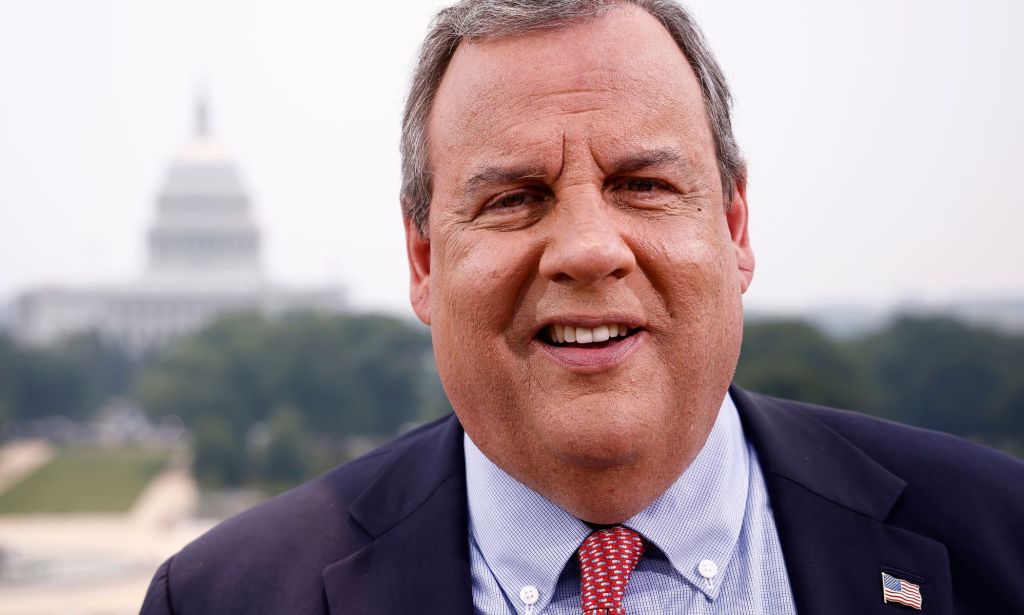
The former New Jersey governor threw his hat into the ring by throwing barbs at Trump, who he called “self-consumed” and “self-serving”.
During his time in politics, Christie said has been inconsistent in his support for the LGBTQ+ community. Christie consistently opposed same-sex marriage and vetoed a bill that would’ve allowed queer couples to get married in New Jersey while governor.
While signing New Jersey’s ban on conversion therapy, he said: “If someone is born that way, it’s very difficult to say then that that’s a sin.” Christie also vetoed a bill that would have allowed trans people in the state to change the gender marker listed on their birth certificates.
Tim Scott
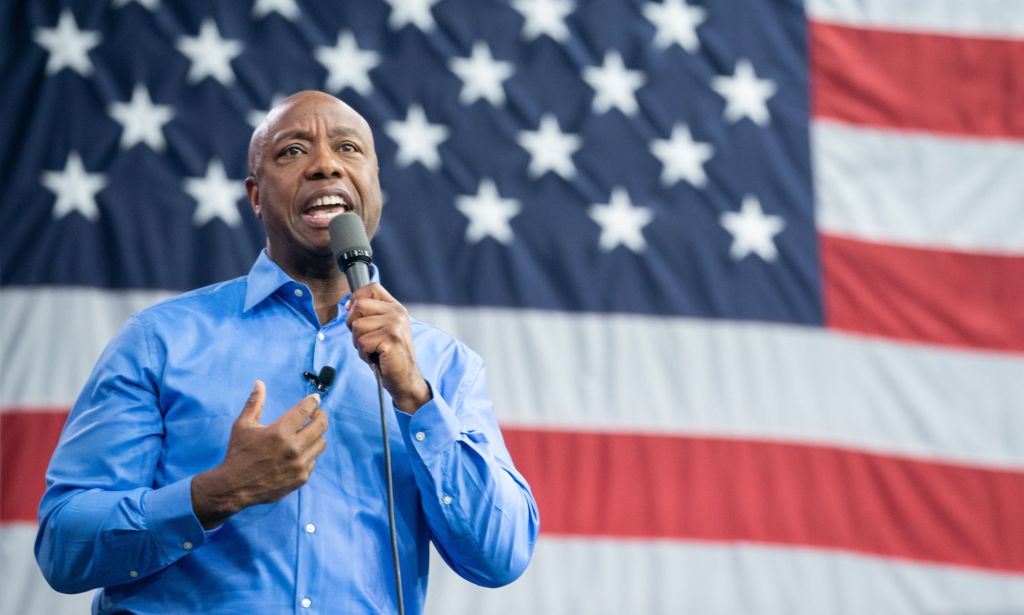
The South Carolina senator entered the Republican presidential primary on Tuesday (23 May) with promises to take on the “radical left”, revive America’s “culture of greatness” and bring faith and conservative policies to the White House.
During his time in the Republican Party, Scott supported the US military’s reviled ‘Don’t Ask, Don’t Tell’ policy, opposed same-sex marriage and told Newsweek that he considers homosexuality to be morally wrong.
He also voted against the Respect for Marriage Act and introduced a bill targeting LGBTQ+ inclusion in schools. On his campaign website, Scott claimed Democrats are “replacing education with indoctrination” – damaging rhetoric used by Republicans to attack trans and LGBTQ+ people.
Asa Hutchinson
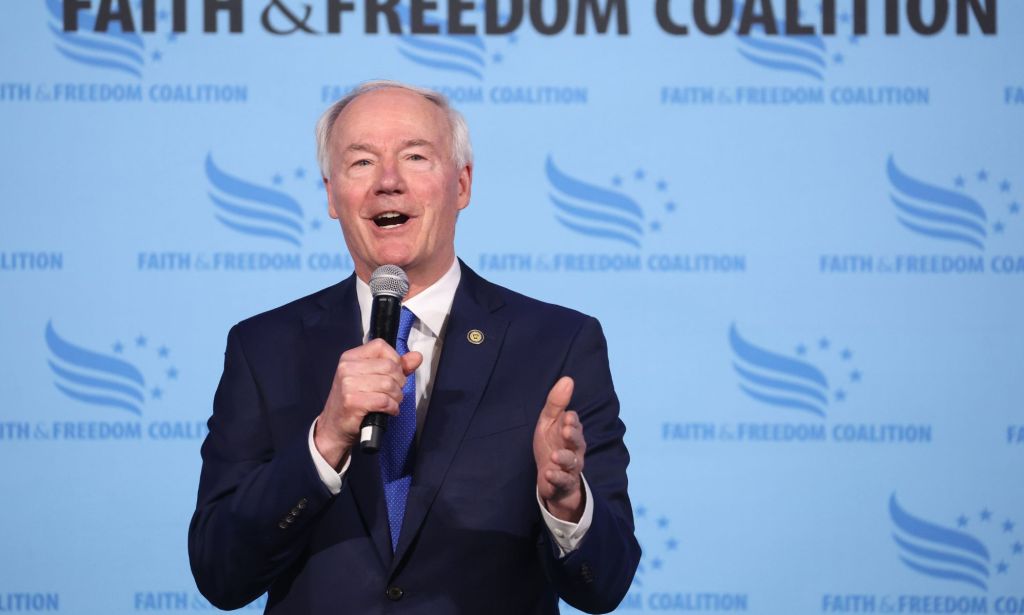
Hutchinson launched his presidential campaign in April, saying he was providing an “alternative to Donald Trump” within the GOP. But this hasn’t translated to mass support for Hutchinson’s campaign as he trails far behind Trump.
As governor of Arkansas, Hutchinson signed into law a trans sports ban; misgendered trans kids in a televised interview; approved a bill allowing doctors to refuse to treat LGBTQ+ patients based on religious or moral objections; and passed a revised religious freedom bill that could allow discrimination against queer people.
Doug Burgum
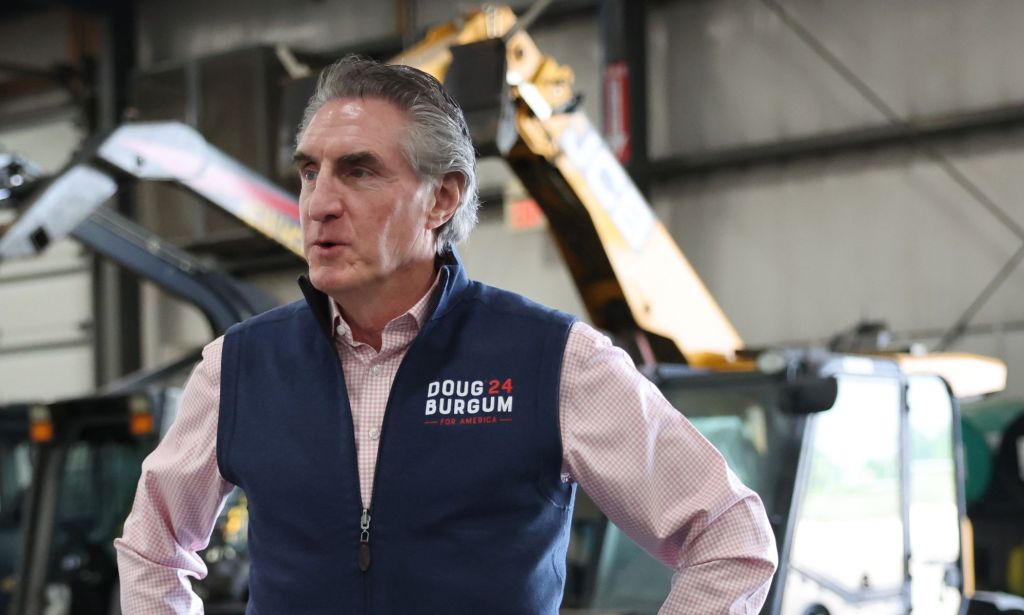
The Republican governor of North Dakota announced his candidacy in the Wall Street Journal, saying the US needed a “change in the White House”. The 66-year-old was a software entrepreneur and Microsoft executive before becoming governor in 2016.
During his time in office, Burgum has signed into law bills banning trans students from participating in school sports, restricting what bathrooms trans people can use in certain facilities and allowing public school teachers and state government staff to ignore the pronouns of trans students and colleagues.
Ryan Binkley
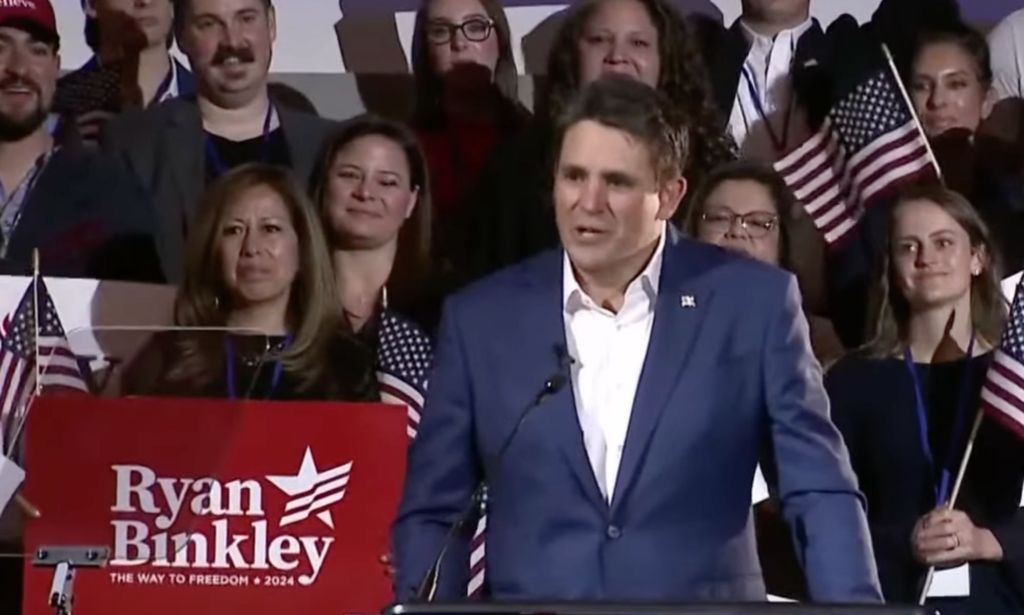
The business executive and pastor from Texas is another long shot in a Republican field dominated by established names within the party.
Binkley’s campaign website states that he wants to restore America’s “faith in God, freedom and each other”.
The website for Create Church, which he founded alongside his wife and is a lead pastor, states that they believe marriage is a “sacred bond between one man and one woman”.
Former Candidates
Mike Pence: The worst vice president for LGBTQ+ people in recent times
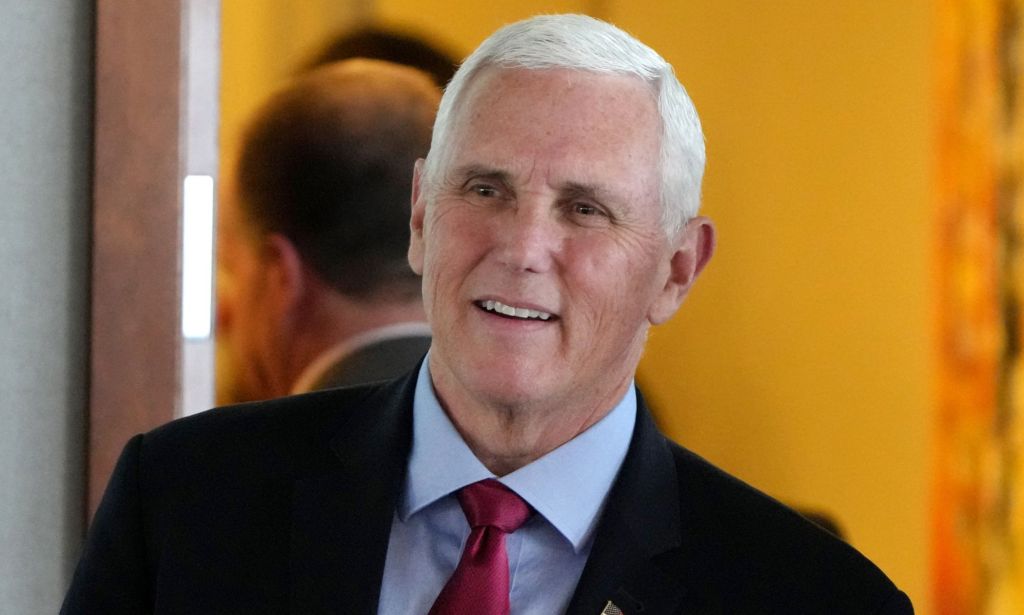
The former vice president under Trump dropped out of the 2024 Republican race in October, saying it was just “not [his] time”. During his time on the campaign trail, Pence compared trans youth accessing life-saving gender-affirming healthcare to ‘kids getting a tattoo before they’re 18’.
Pence told the Des Moines Register that he would fully support a federal ban on trans healthcare and so-called “radical gender ideology” if he made it into the Oval Office.
The former congressman, Indiana governor and vice president to Trump has a track record of opposing LGBTQ+ rights. He strongly opposed same-sex marriages, voted against the ‘Don’t Ask, Don’t Tell’ repeal and supported several anti-LGBTQ+ measures during his time in the Trump administration.
Perry Johnson
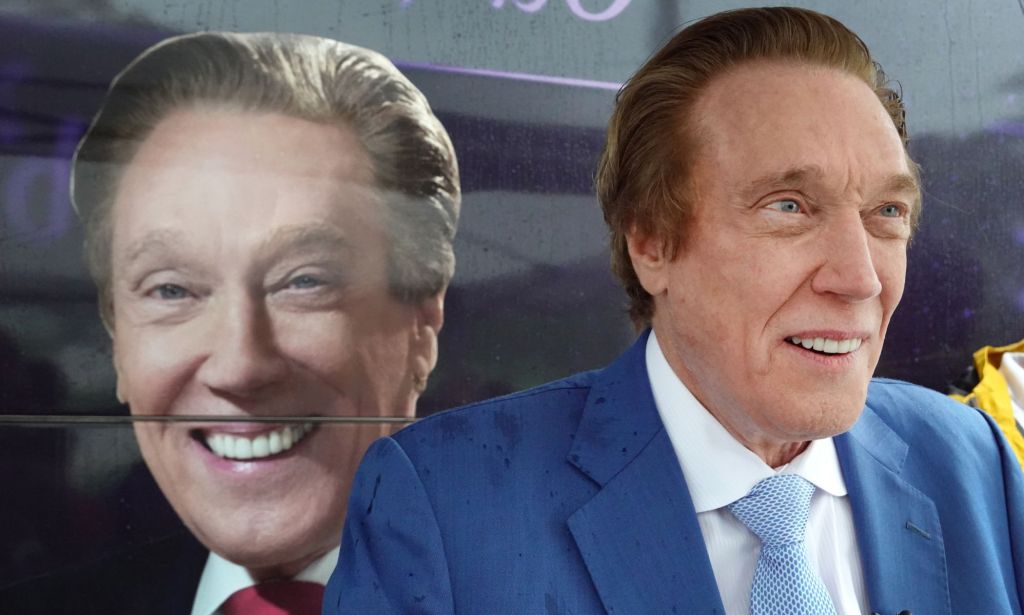
The Republican kicked off his 2024 presidential campaign amid the Conservative Political Action Conference in March and ended it quietly just a few months later in October. It came nearly a year after he was removed from the primary ballot in Michigan’s 2022 gubernatorial race due to invalid petition signatures.
Larry Elder
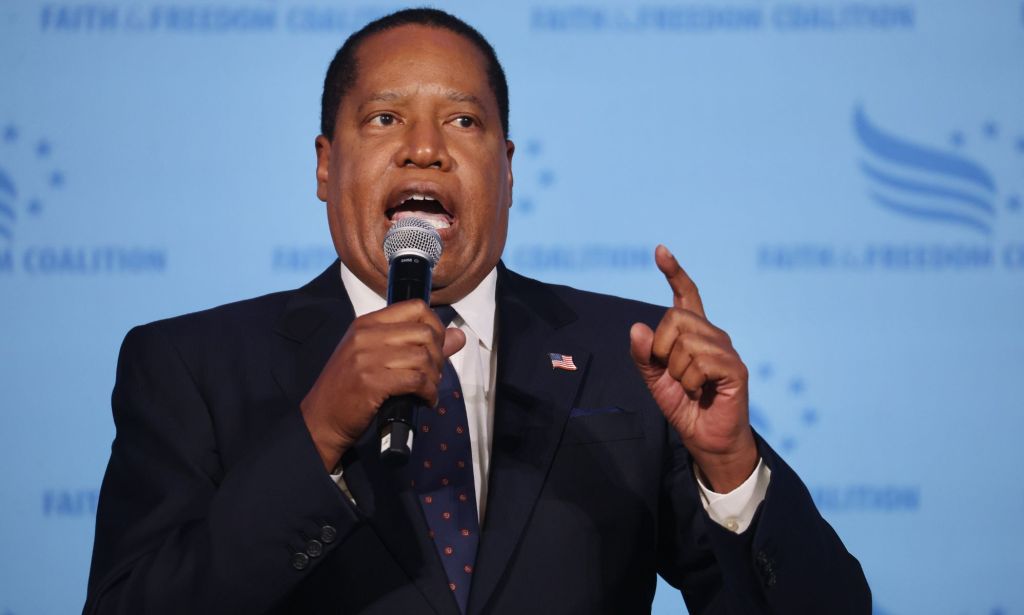
The conservative talk radio host ended his campaign for the 2024 Republican presidential nomination in October, throwing his support behind Trump.
Elder has a long history of anti-LGBTQ+ remarks and was the top Republican opponent to California governor Gavin Newsom during the unsuccessful recall effort in 2021.
Will Hurd
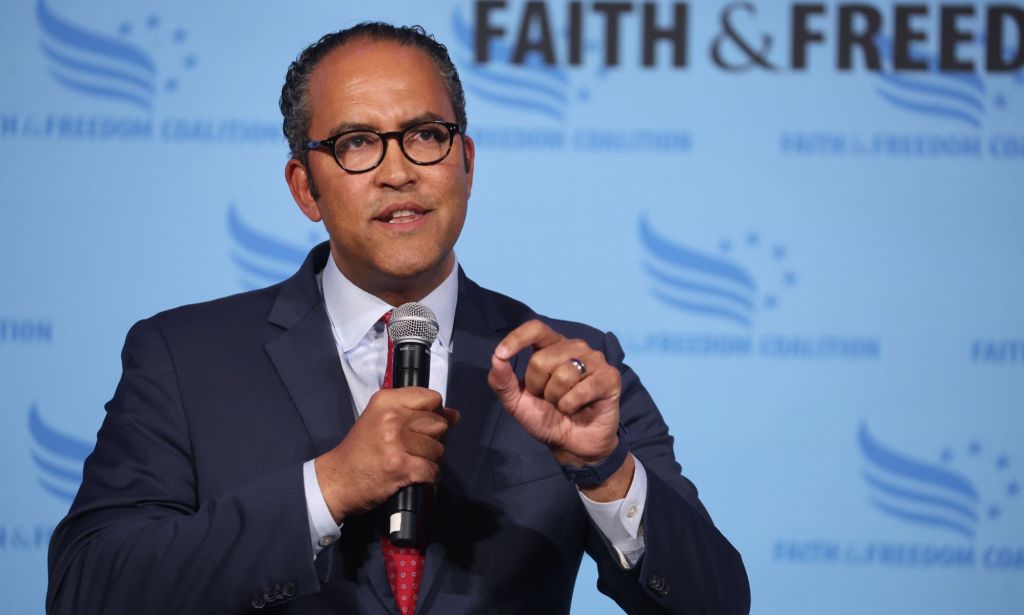
In early October, the former Texas representative and a onetime CIA called it quits on his bid for the Oval Office. Hurd is a staunch critic of Trump, who he called a “lawless, selfish, failed politician”, and called on his supporters to back Haley in the race.
In 2019, Hurd was one of eight House Republicans who voted in favour of the Equality Act. During a recent appearance on CNN’s State of the Union, Hurd said he wished his fellow party members would “focus their attacks on war criminals like Vladimir Putin, not [his] friends in the LGBTQ community”.
But he said the recent Supreme Court ruling siding with a Christian website designer who didn’t want to provide her services for LGBTQ+ weddings was “uncomfortable” but the “right call”.
Francis Suarez
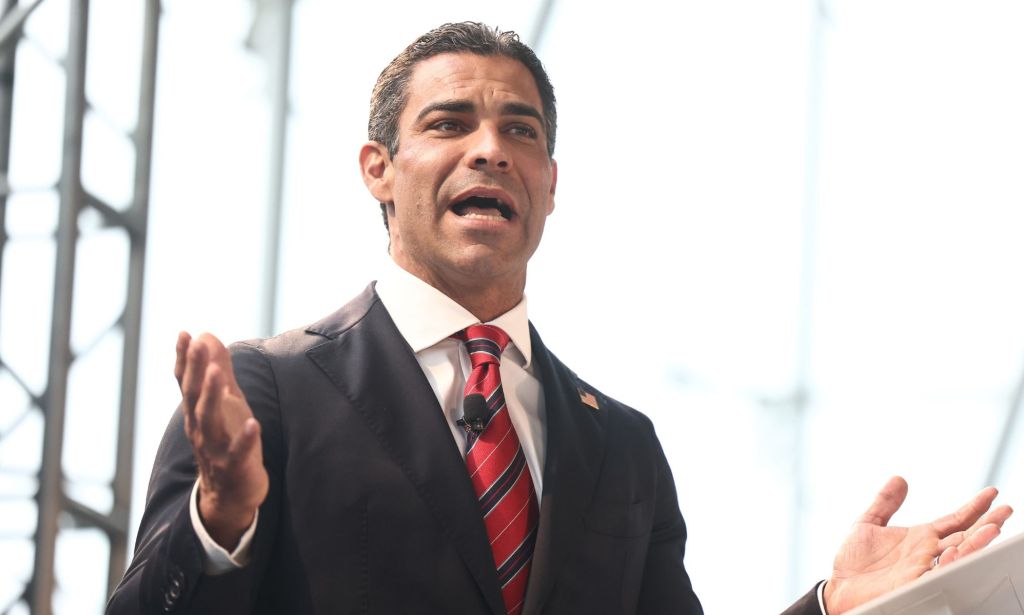
The Miami mayor suspended his bid for the presidency in August, dropping out of the race after failing to qualify for the first Republican debate. He was the first Hispanic person to enter the 2024 race.
Suarez told NBC News he initially supported DeSantis’ ‘Don’t Say Gay’ law, but he said expanding the anti-LGBTQ+ legislation to all grades was “excessive”. He said that he doesn’t “want little kids being taught about sexuality in the classroom”, but he wanted the US to be a “country that is pro-equal rights for the LGBTQ community”.
